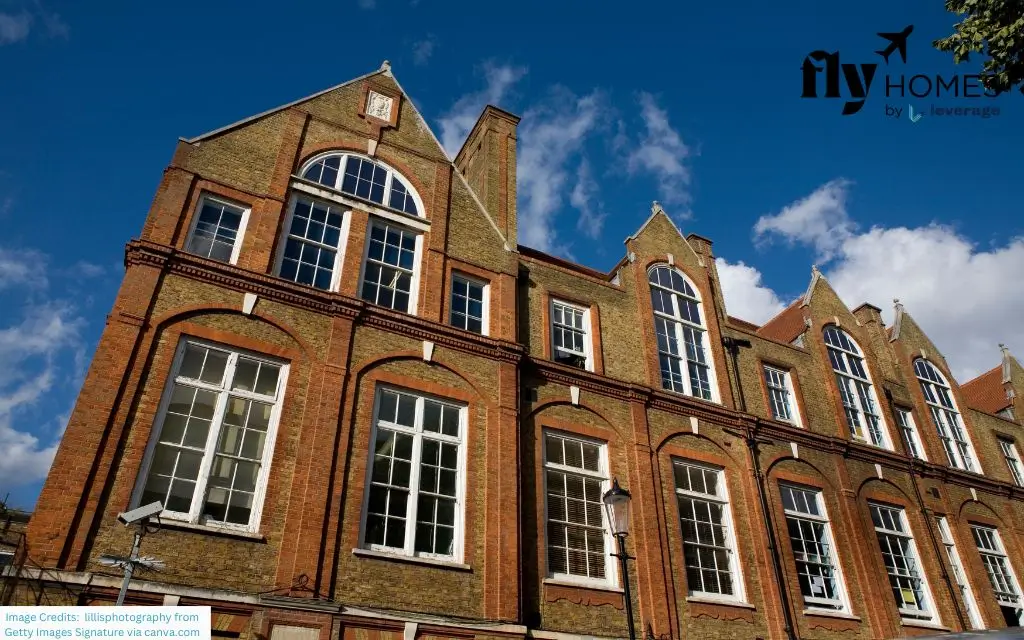Dreaming of studying at one of the world’s best universities? London School of Economics (LSE) is a top choice for students who love economics, business, and social sciences. But getting in is not easy. The competition is tough, and you need outstanding grades, a strong application, and a smart strategy.
If you’re wondering how to get into the London School of Economics, don’t worry! This guide will help you with everything—from eligibility, admission process, acceptance rates, and scholarships. Whether you’re applying for undergraduate or master’s programs, Let’s start by breaking it down into simple steps.
Table of contents
- How to Get Into the London School of Economics Undergraduate?
- How to Get Into London School of Economics for Master’s?
- Top Programs at the London School of Economics
- Cost of Studying at the London School of Economics
- London School of Economics Eligibility Criteria for Indian Students
- London School of Economics Admission Requirements for International Students
- How to Apply to the London School of Economics?
- London School of Economics Acceptance Rate
- Scholarships & Financial Aid at the London School of Economics
- Tips to Get Into the London School of Economics
- FAQs on How to get into the London School of Economics
How to Get Into the London School of Economics Undergraduate?
Getting into LSE for an undergraduate degree is highly competitive. You need strong academics, a well-written personal statement, and relevant extracurricular activities. Follow these steps to improve your chances.
Step 1: Meet the Academic Requirements: LSE has high academic standards. Some courses require specific subjects. For example, Economics requires Mathematics. You need:
- A-Levels: A*AA or higher (depends on the course).
- IB Diploma: At least 38-40 points.
- Indian Students: 90%+ in Class 12 from CBSE/ISC or equivalent.
Step 2: Write a Strong Personal Statement: Your personal statement is crucial. It reflects your personality, passion and aim to study at the London School of Economics. It should include:
- Why do you want to study this subject?
- Your academic strengths and skills.
- Relevant extracurricular activities (internships, competitions, research).
- Future career goals and how LSE fits into them.
Step 3: Take Required Admission Tests
- LNAT: Required for Law applicants.
- Math Test: Some courses may require additional assessments.
Step 4: Meet English Language Requirements: If English is not your first language, you need:
- IELTS: Minimum 7.0 overall (with 7.0 in reading and writing).
- TOEFL: Minimum 100 overall (with 25 in reading and writing).
Step 5: Get a Strong Reference Letter: A teacher or academic mentor should write your recommendation. It should highlight your skills, achievements, and potential.
Step 6: Apply Through UCAS
- Register on UCAS (Universities and Colleges Admissions Service).
- Choose your LSE course and submit your application.
- The application deadline is mid-January each year.
Step 7: Prepare for an Interview (If Required): Some courses may invite shortlisted students for an interview. Be ready to discuss your academic interests and motivation.
How to Get Into London School of Economics for Master’s?

Getting into the London School of Economics for a master’s degree is challenging but possible with the right approach. Following these steps will increase your chances of getting into LSE for a master’s degree. Here’s a step-by-step guide to help you.
Step 1: Choose the Right Program: LSE offers master’s degrees in Economics, Finance, Law, and more. Visit the LSE website to check program details, entry requirements, and deadlines.
Step 2: Meet the Academic Requirements: You need a first-class or upper second-class (2:1) bachelor’s degree from a recognized university. Some programs may require a specific undergraduate background (e.g., Economics for MSc in Economics).
Step 3: Prepare for GMAT/GRE (If Required): Some courses, like Finance and Economics, require GMAT (600+) or GRE (320+). Check the LSE website to see if your program needs these tests.
Step 4: Write a Strong Statement of Purpose (SOP): Explain why you want to study at LSE and your career goals. Show how your background and skills make you a great fit for the program. Keep it clear, structured, and under 1,000 words.
Step 5: Get Strong Letters of Recommendations: You need at least two references (academic or professional). Choose referees who know you well and can highlight your skills and achievements.
Step 6: Prove Your English Proficiency: If English is not your first language, you need:
- IELTS (7.5 overall, 7.0 in each section)
- OR TOEFL (107 overall, 25+ in each section)
Step 7: Submit Your Application Early: LSE has a rolling admissions process, meaning programs fill up quickly. Apply as soon as possible through the LSE Graduate Application Portal.
Step 8: Attend an Interview (If Required): Some competitive programs may invite you for an online interview. Be ready to discuss your application, goals, and why LSE is the right fit.
Step 9: Check for Scholarships and Funding: LSE offers scholarships like the Graduate Support Scheme and LSE Master’s Awards. Apply early, as funding is limited.
Step 10: Accept Your Offer and Prepare for London: If accepted, follow the instructions to confirm your place. Arrange your student visa, accommodation, and finances in advance.
Top Programs at the London School of Economics
If you’re wondering how to get into the London School of Economics, choosing the right program is the first step. LSE is famous for its rigorous academics and global reputation. Here’s a look at some of the most popular programs at LSE and their specializations.
| Program | Level | Specialization |
| Economics | UG, PG | Financial Economics, Development Economics |
| Business & Management | UG, PG | Finance, Strategy, Innovation |
| Law | UG, PG | Human Rights Law, Corporate Law |
| Politics & International Relations | UG, PG | Public Policy, Global Affairs |
| Data Science | UG, PG | Artificial Intelligence, Big Data |
Also Read:
- Cost of Living in London: Living Expenses in London for International Students
- How to Get Into Ivy League Colleges as an International Student?
Cost of Studying at the London School of Economics
If you’re planning how to get into the London School of Economics, it’s important to understand the costs. LSE is one of the most prestigious universities in the world, and studying here can be expensive. From tuition to accommodation, this section will give you a clear idea of what to expect.
| Expense | Undergraduate (per year) | Postgraduate (per year) |
| Tuition Fees | GBP 23,330 – GBP 26,280 | GBP 23,000 – GBP 35,000 |
| Living Costs | GBP 1,300 – GBP 1,600 per month | GBP 1,300 – GBP 1,600 per month |
| Accommodation | GBP 700 – GBP 1,200 per month | GBP 700 – GBP 1,200 per month |
London School of Economics Eligibility Criteria for Indian Students
If you’re wondering how to get into the London School of Economics from India, meeting the eligibility criteria is crucial. LSE has high academic standards and expects strong grades, especially in subjects related to your chosen course. To apply for LSE, you need to meet specific academic and English language requirements.
For Undergraduate (UG) Programs:
If you’re wondering how to get into the London School of Economics for an undergraduate degree, here are the key requirements:
- Academic Requirements:
- Minimum 90% in Class 12 (CBSE, ICSE, or State Board).
- High scores in A-levels (AAA-AAB) or IB (38-40 points).
- Strong grades in relevant subjects (e.g., Math for Economics).
- English Language Proficiency:
- IELTS: 7.0 overall (6.5 in each section).
- TOEFL iBT: 100 overall (25 in each section).
- Personal Statement: A well-written SOP explaining why you want to study at LSE.
- Letters of Recommendation (LORs): At least one academic reference from a teacher.
- Admissions Test (if required): Some programs may require LNAT (for Law) or TMUA (for Math-based courses).
- Extracurricular Activities: Strong participation in research, internships, or leadership roles is a plus.
For Postgraduate (PG) Programs:
If you’re planning how to get into the London School of Economics for a master’s, here are the key eligibility requirements:
- Bachelor’s Degree: A first-class or upper second-class (2:1) degree from a recognized university (60-70% for Indian students).
- Relevant Academic Background: Some programs require a degree in a related field (e.g., Economics for MSc Economics).
- English Proficiency:
- IELTS: 7.0 overall (6.5+ in each section).
- TOEFL iBT: 100 overall (with 23+ in each section).
- GMAT/GRE (if required): Some programs like Finance or Economics may need a high GMAT/GRE score.
- Work Experience: Not mandatory for all programs, but preferred for MBA and executive courses.
- Statement of Purpose (SOP): A well-written SOP explaining academic goals and motivation.
- Letters of Recommendation (LORs): Usually two strong LORs from professors or employers.
- Research Proposal (if applicable): Needed for research-based programs like MRes/PhD.
English Language Requirements:
LSE requires proof of English proficiency. The score to qualify for the English language is given in the table below.
| Test | Minimum Score |
| IELTS | 7.0 (with 6.5 in each section) |
| TOEFL iBT | 100 (with 23 in writing) |
| PTE Academic | 69 (with 62 in each section) |
London School of Economics Admission Requirements for International Students
If you’re searching for how to get into the London School of Economics, understanding the admission requirements is crucial. Let’s go through the key requirements to help you prepare for a strong application. To apply, you need the following documents:
- Academic Transcripts – Class 12 for UG, Bachelor’s degree for PG.
- English Proficiency Test Scores – IELTS/TOEFL/PTE.
- Personal Statement – Why do you want to study at LSE?
- Letters of Recommendation – At least two from teachers or professors.
- CV/Resume – For PG applicants.
- Work Experience (if required) – Some master’s programs need 1-2 years of experience.
How to Apply to the London School of Economics?
If you’re wondering how to get into the London School of Economics, the application process can feel overwhelming. But don’t worry! LSE has a clear and structured admission process. In this section, we’ll break down the steps to apply and give you useful tips to improve your chances of getting accepted.
For Undergraduate (UG) Students:
- Apply through UCAS – Submit your application via the UCAS (Universities and Colleges Admissions Service) portal.
- Meet Entry Requirements – Ensure you meet the academic and English language requirements.
- Write a Strong Personal Statement – Explain why you want to study at LSE and highlight relevant skills.
- Submit Predicted Grades & References – Your school must send predicted grades and reference letters.
- Prepare for Additional Tests (if required) – Some programs may require extra assessments like the LNAT for Law.
- Wait for Admission Decision – LSE reviews applications and responds via UCAS.
For Postgraduate (PG) Students:
- Apply via the LSE Graduate Admissions Portal – Submit your application directly on the LSE website.
- Check Eligibility – Review the required qualifications, work experience (if needed), and English proficiency.
- Submit a Personal Statement – Highlight your achievements, goals, and why LSE is the right fit for you.
- Provide Academic Transcripts & References – You need transcripts from previous studies and strong recommendation letters.
- Prepare for Additional Requirements – Some programs may require a CV, research proposal, or writing samples.
- Pay the Application Fee & Submit – Ensure all documents are uploaded before the deadline.
- Interview (if required) – Some competitive programs may invite you for an interview.
- Wait for the Admission Decision – LSE will notify you via email about their decision.
Also Read:
London School of Economics Acceptance Rate
If you’re wondering how to get into the London School of Economics, you should know that LSE is highly competitive. Every year, thousands of students apply from across the world, making the admission process tough. LSE has a lower acceptance rate for undergraduate programs compared to postgraduate courses. Here’s a breakdown of the acceptance rates:
| Program Level | Acceptance Rate |
| Undergraduate (UG) | 12-15% |
| Postgraduate (PG) | 25-30% |
Scholarships & Financial Aid at the London School of Economics

Studying at LSE can be expensive, but there are many scholarships and financial aid options available for international students. If you’re looking for ways how to get into the London School of Economics without a heavy financial burden, applying for scholarships can help. Here are some of the top scholarships for international students at LSE:
| Scholarship Name | Eligibility | Benefit |
| LSE Undergraduate Support Scheme | Need-based (UG students) | Partial tuition fee waiver |
| LSE Graduate Support Scheme | Need-based (PG students) | GBP 5,000 – 15,000 |
| Chevening Scholarships | Indian PG students | Full tuition + living expenses |
| Commonwealth Shared Scholarship | Developing country PG students | Full tuition + travel + stipend |
| The Beacon Scholarship | Leadership potential (UG) | Up to 50% tuition fee coverage |
Tips to Get Into the London School of Economics
Getting into LSE is tough, but with the right approach, you can make it. LSE looks for ambitious and driven students, so highlight what makes you stand out. Follow these final tips, and you’ll be one step closer to your goal of how to get into the London School of Economics!
- Start Early – Prepare your application at least one year in advance.
- Score High in Academics – Aim for 90%+ in school or First Class in college.
- Write a Strong Personal Statement – Show passion, leadership, and academic interest.
- Get Good Recommendations – Ask teachers/professors who know you well.
- Apply for Scholarships – Reduce costs by applying for need-based and merit-based funding.
Getting into LSE is not easy, but it’s possible with the right preparation. If you start early and focus on strong academics, a great personal statement, and scholarships, you have a great chance!
Hope you liked reading our blog about How to get into the London School of Economics. For a stress-free stay during your study abroad adventure, choose Fly Homes. Call 1800572118 to reserve your ideal accommodation abroad with ease.
FAQs on How to get into the London School of Economics
Indian students need high scores in Class 12 (90%+), a compelling SOP, strong references, and good English proficiency test scores (IELTS/TOEFL).
LSE is highly competitive, with an acceptance rate of around 8–12%. Applicants need outstanding academic and extracurricular records.
LSE requires excellent academic scores, strong personal statements, and recommendation letters. Most undergraduate courses need an A*AA or equivalent, while master’s programs require a strong bachelor’s degree.
LSE does not require SAT/ACT for UK applicants. However, international students from some education systems may need standardized test scores.
LSE usually requires IELTS 7.0+ (with 7.0 in each section) or TOEFL 100+ (with 25 in each section) for English proficiency.
Focus on your passion for economics, academic achievements, relevant work experience, and how LSE aligns with your goals. Be clear and concise.
Yes, LSE offers scholarships like the LSE Graduate Support Scheme and the LSE Undergraduate Support Scheme, which provide financial aid.
LSE prefers Maths, Economics, and Social Sciences. For quantitative courses, strong Maths skills are essential.
For undergraduate courses, it’s optional but helpful. For postgraduate programs, relevant work experience can strengthen your application.
You can apply for one undergraduate course via UCAS. For postgraduate courses, multiple applications are allowed but need separate SOPs.
Follow Us on Social Media




























